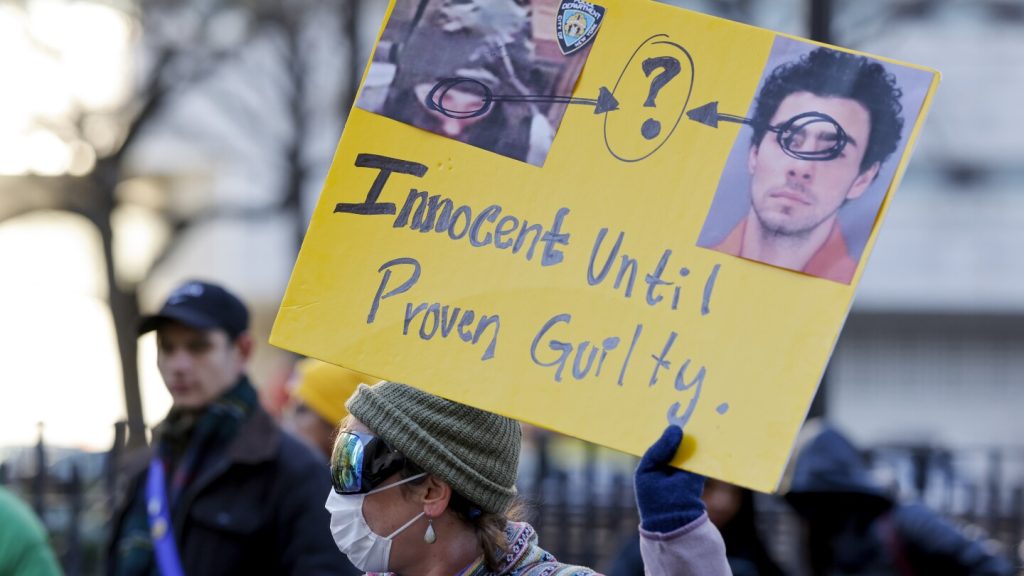The recent killing of UnitedHealthcare’s CEO, Brian Thompson, has sparked a nationwide discussion on the responsibility of health insurance profits and coverage denials in the tragedy. According to a new poll by NORC at the University of Chicago, about 8 in 10 U.S. adults believe that the person who committed the killing holds a significant amount of responsibility. However, some have portrayed the suspect, Luigi Mangione, as a heroic figure due to his arrest, which led to grievances about insurance companies. Police found words like “delay,” “deny,” and “depose” on the ammunition at the scene, reflecting common criticisms of insurance tactics.
The poll also revealed that about 7 in 10 adults believe that denials for health care coverage or the profits of health insurance companies are also partially responsible for Thompson’s death. Younger Americans are more inclined to view the murder as a result of various factors rather than just the actions of one person. Factors such as wealth or income inequality were also seen as contributing to the killing, with half of those polled believing it played a role. Critics of the insurance industry often question whether patient interests are truly a priority given the significant profits made by companies like UnitedHealthcare.
UnitedHealthcare reported a profit of over $16 billion last year, emphasizing that a significant portion of their revenue goes towards paying for care. However, concerns about coverage denials and other complexities in the health care system persist, especially among patients and doctors dealing with serious illnesses. Younger Americans, particularly those under 30, are more likely to attribute the responsibility for Thompson’s death to a combination of insurance company practices and the killer, rather than solely on the individual’s actions.
The poll also highlighted frustrations with the U.S. health care system, as about 3 in 10 Americans reported experiencing problems with coverage from their health insurer in the last year. Issues such as finding suitable providers, denied claims, and prior authorizations continue to impact patients, particularly those under 60. Despite efforts by UnitedHealthcare to streamline the approval process, a significant number of customers still face challenges in accessing necessary care. Roughly 3 in 10 respondents noted that immediate family or friends had also faced obstacles with health insurance coverage.
The poll results underscore the ongoing challenges and concerns surrounding health insurance, coverage denials, and the broader health care system in the United States. The issue of responsibility in tragic events like the killing of a CEO brings to light the complex interplay between individual actions, corporate practices, and societal factors. As the debate continues, it is clear that there is a growing demand for transparency, accountability, and improved access to quality health care for all Americans. The findings of the poll reflect a deep-seated frustration with the status quo and a desire for meaningful change in the health insurance industry.


